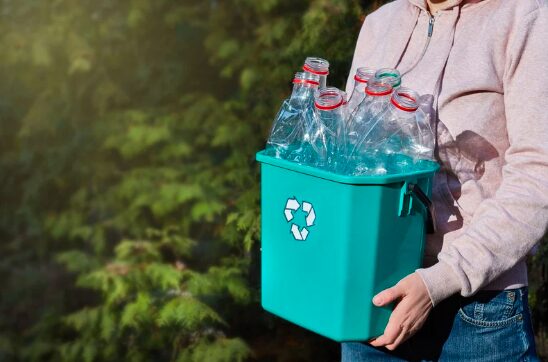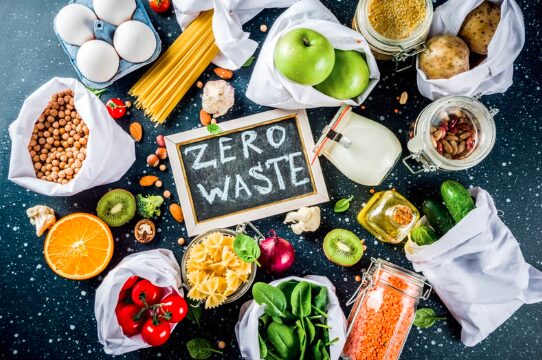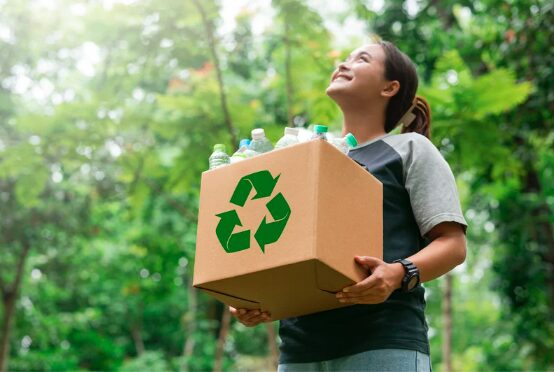Have you ever tossed out something that could still be used? Maybe it’s a pair of shoes that still fit but are just a bit worn, or a toy you don’t play with anymore. Sometimes we throw things away without thinking, but later, we might feel a little guilty.
In Japan, there’s a word for that feeling: “mottainai.” It’s more than just a word—it’s a mindset that encourages people not to waste what they have. Keep reading to learn more about this concept and how it can be applied to business practices!
What Does Mottainai Mean?
“Mottainai” is a Japanese word that means “what a waste.” It expresses the idea of not wasting resources, whether it’s food, materials, time, or energy. This concept has been part of Japanese culture for centuries. It teaches us to respect what we have and to make the most out of it. Whether it’s reusing, repurposing, or recycling, the idea of mottainai is about finding value in everything and not just throwing things away when they’re no longer shiny or new.
In English, mottainai might remind you of the phrase “reduce, reuse, recycle.” However, mottainai goes beyond just recycling. It’s about living with a sense of gratitude for the things we own and making sure they don’t go to waste. It’s a mindset that can be applied to almost every part of life, from what we eat to how we shop and even how we spend our time.
How Is Mottainai Practiced in Everyday Life?
Mottainai can be seen all over Japanese daily life. One big example is how Japanese people treat food. Instead of throwing away food scraps or leftovers, they find creative ways to use them. For instance, the water left over from rinsing rice can be used to water plants. Vegetable peels are often used to make broth or soup instead of being tossed into the trash. These small actions add up to make a big difference in reducing waste.
Another way mottainai is practiced is with clothing. In the past, Japanese people would repurpose old kimonos, which are traditional clothes. When a kimono became too worn to wear, it wasn’t thrown away. Instead, it would be taken apart and turned into other items like bags, blankets, or cleaning cloths. This practice is still popular today. People donate their old clothes, shop at thrift stores, or even upcycle clothes into something new. By giving clothes a second life, they keep them out of landfills and reduce the need to produce more.

The concept of mottainai also appears in how people in Japan manage their trash. They have very strict rules about separating trash for recycling. For example, there are specific days to throw out plastic bottles, paper, and glass, and each type of waste has to be cleaned and sorted properly. This helps the country recycle more and send less waste to landfills. In fact, Japan has one of the highest recycling rates in the world.
Even big items like furniture or electronics aren’t just tossed out in Japan. To throw away something large, people often have to pay a fee, which encourages them to recycle or find ways to reuse these items instead. Sometimes people will even post old furniture online for others to take for free. This helps reduce the amount of waste and gives things a second chance at being useful.

Mottainai and the Environment
Mottainai doesn’t just apply to objects—it’s also about respecting the environment. The idea encourages people to think carefully about how their actions impact the planet. By reducing waste, we can help protect natural resources like water, forests, and energy. For example, many businesses in Japan try to reuse resources in creative ways. Some companies turn leftover oil from cooking into fuel, while others recycle waste materials from factories to make new products.
In Japan, some families also practice mottainai by reusing bathwater. While this might sound strange, it’s actually a common way to save water. In many homes, family members share the same bathwater, with each person taking turns in the tub. The water is still clean because everyone washes before getting into the bath, and it helps reduce water usage.
How Can You Practice Mottainai?
You don’t have to live in Japan to practice mottainai. There are many simple ways you can embrace the concept in your own life. Here are a few easy ideas:
- Eat all your food: Try not to waste food by eating leftovers, buying only what you need, or freezing extras for later.
- Repurpose old items: Instead of throwing away old clothes, toys, or tools, think about how they can be used in a new way. For example, old T-shirts can become cleaning rags, or broken toys might be fixed or donated.
- Buy secondhand: Shopping at thrift stores or buying secondhand items online can save resources and money.
- Take care of your belongings: Keep your things in good shape by cleaning and repairing them instead of replacing them as soon as they show signs of wear.
- Recycle properly: Separate your recyclables and make sure to follow your local recycling rules to ensure that materials are properly reused.
- Use less: Whether it’s turning off the lights when you leave a room or using less water while brushing your teeth, small actions can reduce your overall waste and energy use.

How Mottainai Can Be Shared Globally
The idea of mottainai has even spread beyond Japan. Wangari Maathai, a Nobel Peace Prize winner from Kenya, was one of the people who helped share the concept with the world. She saw mottainai as a way to encourage environmental protection by reducing waste and reusing resources. Today, people from many countries use the idea of mottainai to think about how they can make their lifestyles more sustainable.

Wangari Maathai
Image Source: https://www.theguardian.com/world/2011/sep/26/wangari-maathai
Mottainai and Japarcana
At Japarcana, we believe in the importance of mottainai, especially when it comes to providing businesses with high-quality, sustainable products. Our Imabari towels are a great example of this mindset. These towels are made with the highest standards of quality, ensuring they last for a long time. By offering Imabari towels to businesses, we provide a product that is both durable and environmentally friendly.
When businesses choose Imabari towels, they are making a decision that supports sustainability. Instead of buying cheaper towels that need to be replaced more often, Imabari towels hold up over time. This reduces waste which saves resources and money in the long run. Plus, the towels are made using eco-friendly methods that align with the mottainai way of thinking.
Final Words
Whether it’s food, clothing, or even time, mottainai reminds us that everything has value and should not be wasted. By adopting this mindset, we can help protect the environment, save money, and create a more sustainable future.
Explore our collection of Imabari towels today and see how they embody the spirit of mottainai. Make a choice that benefits both your business and the planet!

